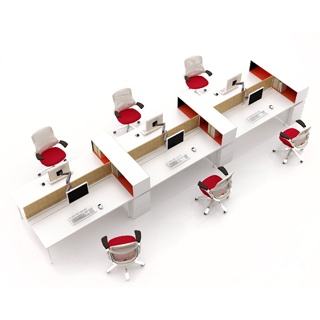 Over the past decade, the growth in open, collaborative workspaces has been on the rise around the globe. European companies have long used open floor plans, while their American counterparts have increasingly followed suit. The International Management Facility Association estimates about 70% of North American employees now work in offices with an open floor plan or open seating. Open workspaces may offer the following benefits for workers and their employers, as demonstrated by the Survey on the Influence of Workplace Design & Practices on the Ethical Environment:
Over the past decade, the growth in open, collaborative workspaces has been on the rise around the globe. European companies have long used open floor plans, while their American counterparts have increasingly followed suit. The International Management Facility Association estimates about 70% of North American employees now work in offices with an open floor plan or open seating. Open workspaces may offer the following benefits for workers and their employers, as demonstrated by the Survey on the Influence of Workplace Design & Practices on the Ethical Environment:
- Increased space utilization.
- More employee engagement.
- Higher employee morale and productivity.
- Improved employee retention.
- Less employee misconduct.
- Reduced costs and environmental impact associated with less square footage.
However, dissenting voices against these new open-office workspaces are numerous. A study conducted by the Finnish Institute of Occupational Health found that the negative effects of the open space concept included increased distractions, less privacy, more difficulty concentrating and increased use of coping strategies.
In his article “It Doesn’t Matter Whether or Not You Like Your Open Office,” author David Craig contends the open office debate is flawed. Craig acknowledges that offices don’t have to be exclusively open or exclusively private.
Group spaces can, for example, be optimized to enhance productive distractions while minimizing the pointless ones, and individuals can be given a dozen types of spaces to choose from at any given moment rather than be limited to just one.
Perhaps the optimal balance does involve a mix of spaces for different activities. In Fortune Magazine, Katherine Reynolds Lewis proposes that creating a smart open workspace involves more than installing bench seating and laptop portals.
Done right, an open floor-plan office will include strategically placed quiet rooms for “heads down” work, huddle rooms for small meetings or impromptu discussions, larger conference rooms, and social areas where all that collaboration and innovation can take place. There should also be access to plants and natural light, whether through windows, skylights or creative use of atriums.
Metro Offices is dedicated to satisfying the workspace needs of businesses of all types and sizes, whether this means open workspaces, private offices, Washington DC meeting space or any combination of these. Just tell us where you want to take your business, and our experts will map out an innovative workspace plan to get you there. To speak to a Metro Offices representative regarding an office space in Arlington or any DC area, simply click or call us today at (703) 871-5208.
